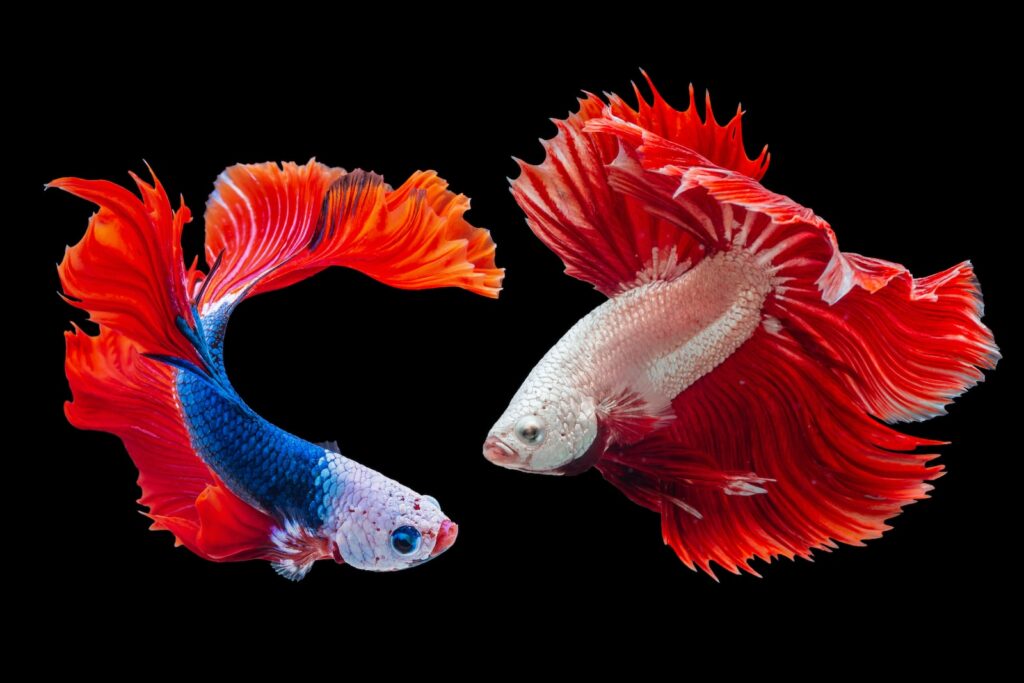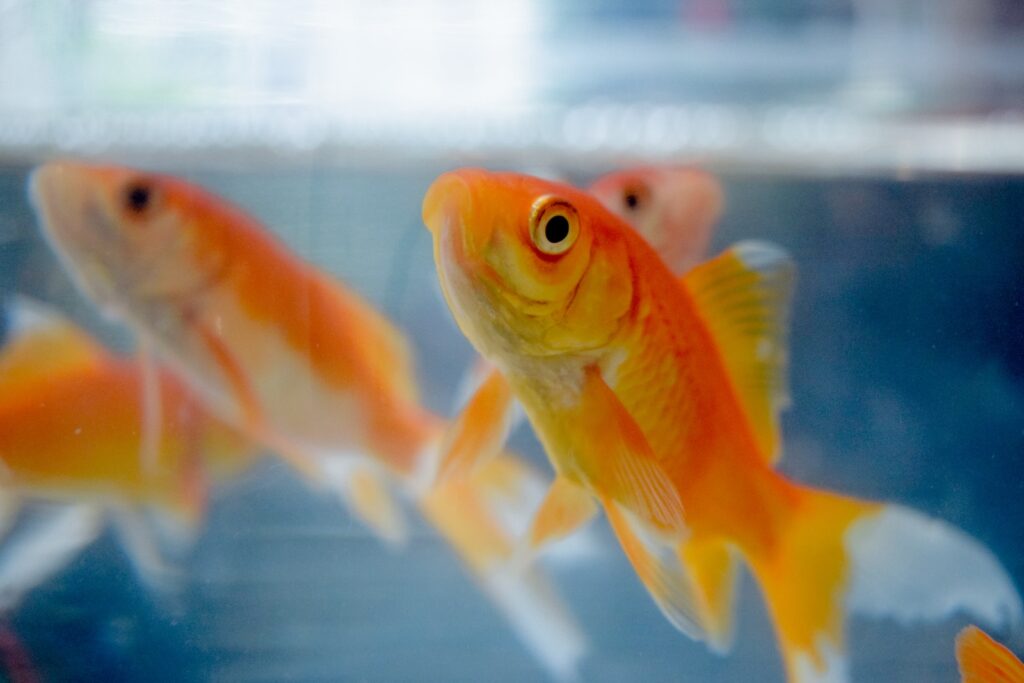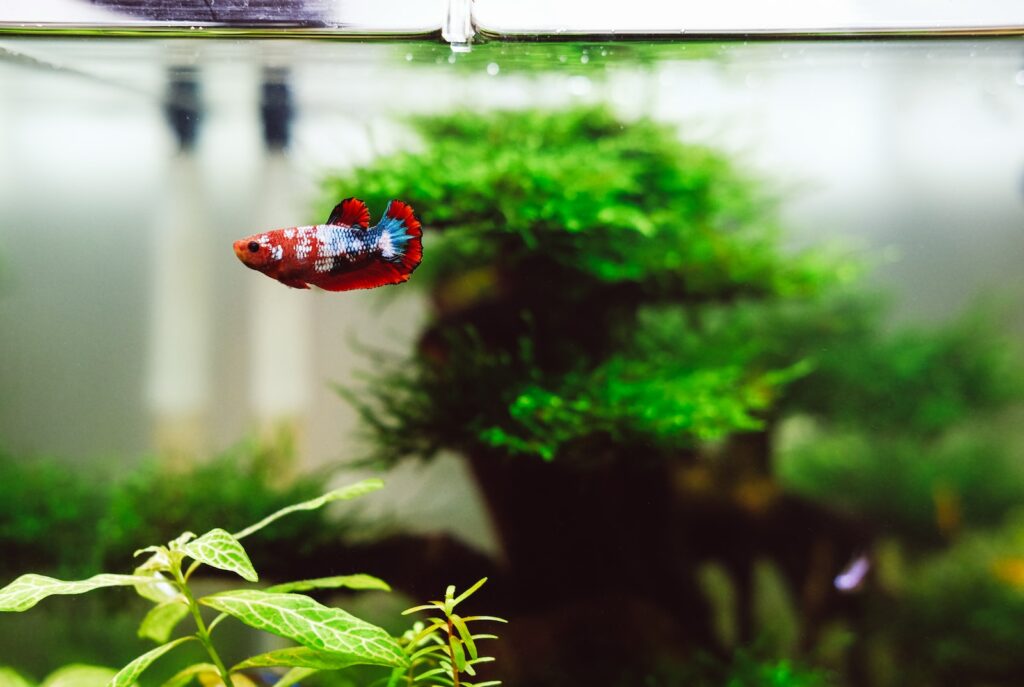Welcome to the world of Betta fish! These vibrant, spirited swimmers have taken the aquatic hobbyist community by storm. But before you rush out to bring one home, be informed that, like any other pet, Betta fish require specialized care. Let’s deep dive into the common mistakes made by Betta fish enthusiasts and how to avoid them.
The Basics of Betta Care
Understanding the fundamentals is pivotal before embarking on your Betta journey.
- Choosing the Right Tank: Contrary to popular belief, those petite containers you often see in stores aren’t suitable. Betta fish are active swimmers and need adequate space to flourish.
- Water Quality: Cleanliness is paramount, but there’s more to it than meets the eye. It’s vital to consistently test for ammonia, nitrite, and nitrate levels to maintain optimal water conditions.
- Diet: Betta fish have specific dietary needs. Avoid overfeeding and ensure you’re offering them a varied, nutrient-rich diet.
- Environment: While Bettas are fond of places to hide and plants to swim around, it’s essential to avoid any sharp or rough objects that could damage their delicate fins.
Common Mistakes
Now that we’ve touched upon the basics, let’s delve into the frequent mistakes that Betta enthusiasts tend to make.
- Improper Water Conditions: Clean water doesn’t guarantee a healthy habitat. It’s the chemical balance, including pH and hardness, that plays a significant role in their well-being.
- Wrong Tank Mates: Bettas are known for their territorial nature. Hence, it’s crucial to be discerning when introducing other fish species into their environment.
- Incorrect Diet: Quality over quantity is the mantra. A Betta’s stomach is roughly the size of its eye, making it easy to overfeed them, which can lead to health complications.
- Lack of Stimulation: Bettas are not just about aesthetics. They are curious creatures that thrive when their environment offers toys, plants, and activities to engage with.
Avoiding Illness
Like all aquatic pets, Betta fish are susceptible to various illnesses. However, with adequate care and knowledge, these can be avoided or treated promptly.
- Fin Rot: This is a common ailment resulting from poor water conditions, especially when there’s an accumulation of waste. Regular cleaning and water changes can play a pivotal role in preventing fin rot.
- Ich: Characterized by white spots on your Betta’s body, Ich is a parasitic infection. If you notice these symptoms, it’s crucial to quarantine your Betta and administer the required medication.
- Swim Bladder Disease: If your Betta is floating on one side or seems to have difficulty swimming, it might be suffering from Swim Bladder Disease. This condition is often caused by overfeeding, so monitoring their diet is essential.
- Bacterial Infections: These can manifest in various ways, including open sores or a loss of color. Keeping the water clean, ensuring a balanced diet, and minimizing stress are key prevention methods.
Handling Your Betta
While Bettas are largely display pets, there are occasions when hands-on care is required.
- Netting: When netting your Betta, always use a soft, fine-meshed net to avoid causing any damage to their delicate fins.
- Transfer: If you need to move your Betta, use a designated container instead of your hands, minimizing stress and ensuring safety.
- Cleaning: Regular tank maintenance is indispensable for a Betta’s health. However, sudden changes in their environment can be stressful. Ensure gradual adjustments to maintain a consistent habitat.
- Feeding: Hand feeding can be an enjoyable bonding activity, but moderation is key. Bettas can easily overeat, so only offer what they can consume in a few minutes.
Betta Fish Behavior
Observing a Betta fish in its habitat can be both entertaining and educational. Each Betta exhibits unique behaviors, which can be a blend of its innate nature and its environment.
- Flaring: This behavior, where the Betta spreads its gills and fins, can be a sign of aggression, usually when confronted with another Betta. However, it can also indicate courtship. Continuous flaring might point towards high stress levels or an unsuitable environment.
- Bubble Nests: Often seen in male Bettas, these are clusters of bubbles at the water’s surface. While this behavior signifies a readiness to breed, it’s also an indicator of happiness and health.
- Color Changes: A Betta’s vibrant colors can fluctuate based on its mood, health, or age. Rapid or drastic changes, however, may indicate potential health concerns or stress.
- Lethargy: If your Betta is consistently inactive or spends a lot of time at the bottom of the tank, it might be a sign of illness or suboptimal water conditions. Monitoring water quality and observing for other symptoms is crucial.
The Right Equipment
Providing a comfortable habitat for your Betta entails more than just a tank of water. Investing in the right equipment is essential for its health and well-being.
- Heater: Originating from tropical climates, Bettas thrive in warmer water. A heater helps maintain an optimal temperature range of 78-80°F (25-27°C), crucial for their health.
- Filter: Clean water is a necessity, not a luxury. Filters aid in eliminating waste and impurities. However, select one with a gentle flow to avoid strong currents, which Bettas dislike.
- Lighting: Just like humans, Bettas have a circadian rhythm. Adequate lighting, mimicking natural day-night cycles, ensures they remain active during the day and restful at night.
- Test Kits: Regularly testing water parameters such as pH, ammonia, nitrites, and nitrates ensures a safe environment. A comprehensive test kit is an invaluable tool for every Betta owner.
Conclusion
Betta fish are undeniably captivating, with their striking colors and animated behaviors. Yet, like all living beings, they require a harmonious environment, attention, and consistent care to truly flourish. By sidestepping common mistakes and arming oneself with knowledge, it becomes not just feasible but also deeply rewarding to ensure these aquatic jewels lead fulfilling lives.
FAQs
- Q: How often should I feed my Betta?
A: A balanced feeding routine is pivotal. It’s best to feed them once or twice a day, but only an amount they can consume within a few minutes to avoid overfeeding. - Q: Can I keep two Bettas together?
A: Typically, male Bettas are territorial and will engage in aggressive confrontations. Keeping a male and female together is possible but requires careful monitoring. Any sign of hostility should be addressed promptly. - Q: How often should I change the water?
A: It’s advisable to conduct partial water changes weekly. However, the frequency can vary based on tank size and filtration efficiency. Regular water quality testing is indispensable. - Q: Why is my Betta hiding all the time?
A: There are several reasons, including stress, potential illness, or an environment that lacks suitable hiding spots or is too exposed. Evaluating and adjusting their habitat might alleviate this behavior. - Q: Are Betta fish easy to care for?
A: With appropriate knowledge, equipment, and a dash of dedication, caring for a Betta is straightforward. Nevertheless, as with any pet, a commitment to their well-being is paramount.



